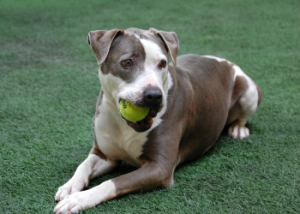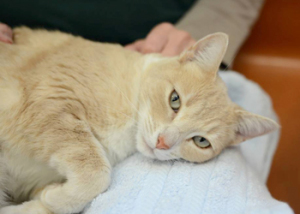Adopting Older Animals
Adopting an Older Dog
Puppies are  undeniably cute. However, as anyone who has raised a puppy knows, these little bundles of joy can be as labor-intensive as a small child. If you’ve been searching for a canine companion but are not sure you have the time, energy and patience it takes to properly train a puppy, consider the advantages of adopting an older dog.
undeniably cute. However, as anyone who has raised a puppy knows, these little bundles of joy can be as labor-intensive as a small child. If you’ve been searching for a canine companion but are not sure you have the time, energy and patience it takes to properly train a puppy, consider the advantages of adopting an older dog.
- Convenience. Training a puppy means starting at ground zero; an older dog will most likely be housebroken and may have had previous training. At the very least, an older dog will not have to be fed or taken outside as often as a younger one, and can be left alone for longer periods of time. The older the dog, the more independent they can be.
- Older dogs often make great companions for older or less active people, who don’t have the stamina or desire to keep up with a young, energetic dog.
- With an older dog you know what you’re getting in terms of size, physical appearance, health and temperament.
- An older dog has already gone through the destructive phases of adolescence and puppyhood, and will most likely be more focused and self-disciplined.
- Can you teach an old dog new tricks? Sure. In fact, older dogs have a longer attention span, and often give more recognition to their trainers than puppies and young dogs do.
Before heading to the nearest puppy kennels in search of your next companion, take a moment to ponder the possibilities of an older dog. You may be surprised what (and who) you find.
 Adopting an Older Cat
Adopting an Older Cat
- Kittens need much more attention and supervision than adults. If the potential adopter works outside the home or is otherwise frequently away, they’ll find that an adult cat will adapt to their home much more comfortably than a kitten.
- The same is true for a home that already has other animals. While a resident dog can be a hazard for a small kitten, an adult cat will soon set boundaries and decide with the dog who belongs where, and when. This seems to be also true of homes with a resident feline. A kitten can be too playful and annoying for an older cat, whereas another adult, introduced slowly and patiently, will work out with the first cat a pecking order that suits both parties.
- Households with very young children are another poor choice for a kitten. Young children can sometimes be very rough with a kitten. Adult cats seem to be able to tolerate a certain amount of handling from kids yet are still able to leave when enough is enough.
